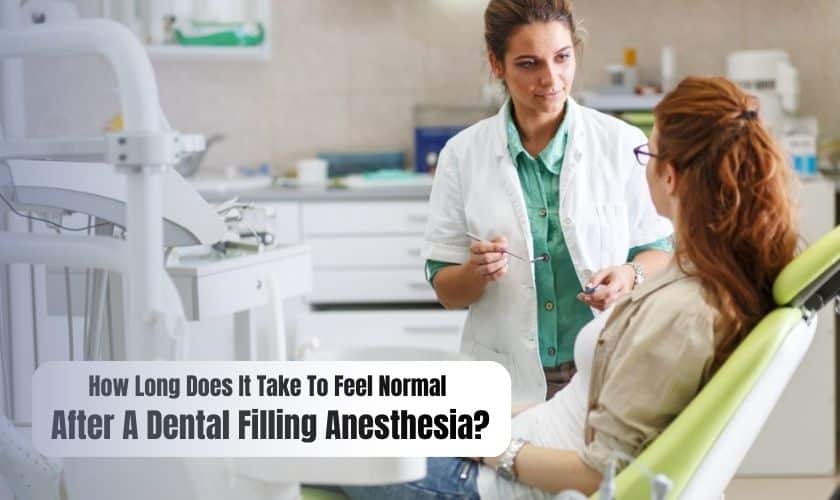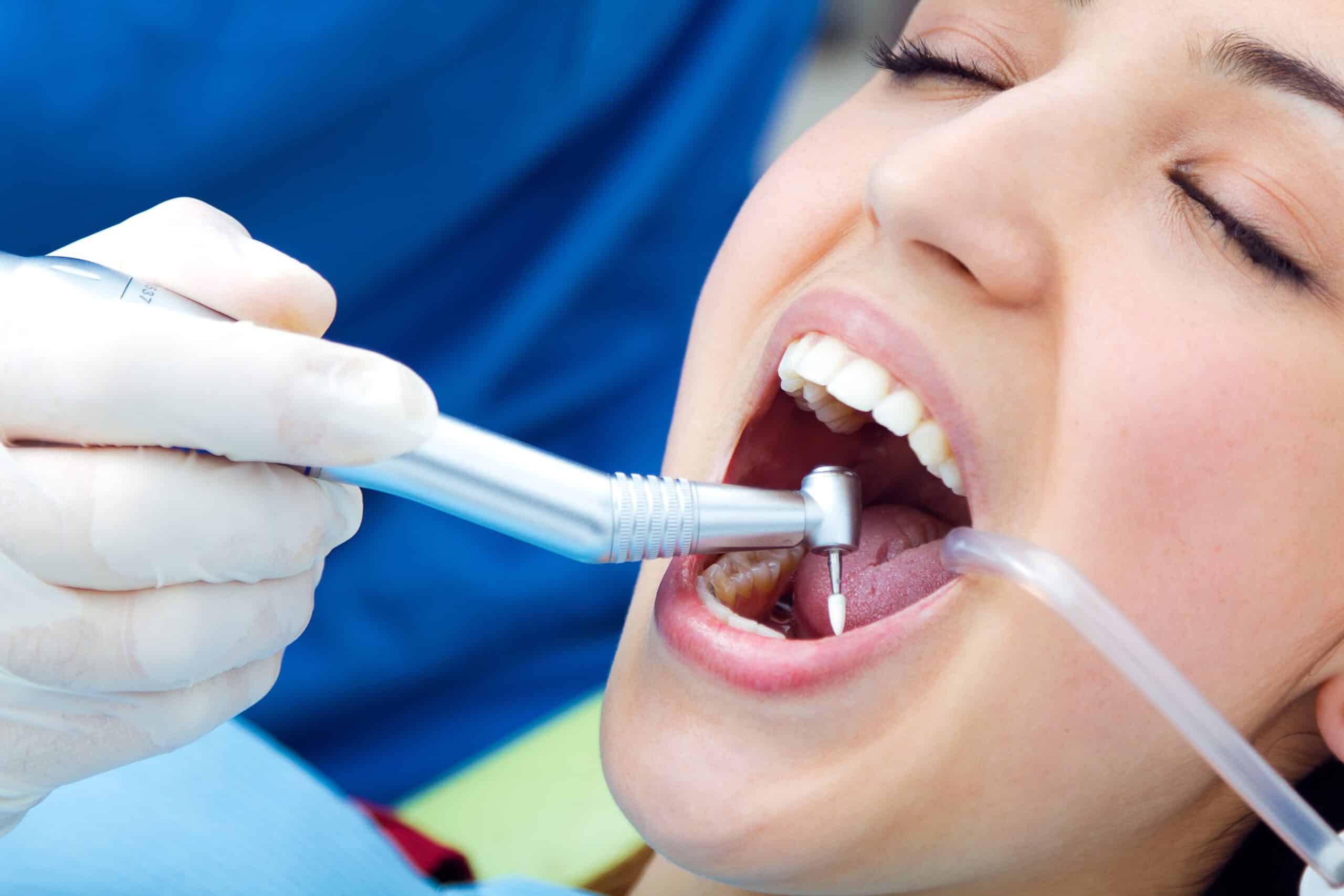
How Long Does It Take To Feel Normal After A Dental Filling Anesthesia?

Dental work can be an unpleasant experience, but dental fillings are essential for restoring tooth damage caused by decay or trauma. During dental work, the dentist may administer local anesthesia to numb the area around your mouth before performing the procedure. The effects of this will eventually wear off, so you might be wondering, “How long does it take to feel normal after a dental filling anesthesia?” Read on to find out!
Effects of Anesthesia
Local anesthesia is used during dental procedures to keep patients from feeling pain. It works by blocking a patient’s nerve impulses, which prevents them from feeling any sensation in the treated area. Usually, dental anesthetics wear off within 1-2 hours after treatment, but it can take up to 4 hours for more complex dental procedures.
Time Until Effects Wear Off
Local dental anesthesia takes 10-15 minutes to start working. The amount of time it takes for the effects to wear off fully will depend on the type and dose of anesthesia used during your procedure. In most cases, you should be back to feeling normal after 30 minutes to an hour; however, if your dentist uses a stronger dosage or higher concentration of anesthesia, it may take longer. If you’re concerned, talk to your dentist before the procedure so they can provide a more accurate estimate of how long it will take for the effects to wear off.
Possible Side Effects
It’s common to experience mild side effects from dental anesthetics, such as numb mouth or lips and difficulty speaking. Other potential side effects include swelling or tenderness at the injection site and temporary blurred vision. If these symptoms persist for more than a few hours after dental work, contact your dental professional immediately.
Aftercare Tips
After dental work, you must take extra care of your teeth and get plenty of rest. Avoid eating hard or sticky food for the first 24 hours, as this could damage your dental work. Additionally, you should brush and floss gently around the treated area to prevent infection.
When To See a Doctor
Although dental fillings are generally safe and effective, there is always a risk of complications from anesthesia or dental procedures. Contact your dental professional immediately if you experience severe pain or swelling after dental work. Additionally, if you’re feeling lightheaded or dizzy after dental anesthesia wears off, it’s important to see a doctor as soon as possible.
Severe Side Effects
In rare cases, dental anesthetics can cause more serious side effects like nausea, difficulty breathing, or a rash. If you experience any of these symptoms after dental work, seek medical attention immediately.
Allergic Reactions
It is also possible to have an allergic reaction to dental anesthesia. Symptoms of an allergic reaction can include hives, facial, lips, or throat swelling, and difficulty breathing. If you notice any signs of an allergic reaction after dental treatment, contact your doctor immediately for medical advice.
Long-Term Effects
Although dental fillings are generally safe and effective when done correctly by a dental professional, there is always a risk of long-term effects from dental anesthesia or dental procedures. Talking to your dental professional about the potential risks of dental work before having any procedures done is important.
Dental fillings are a safe and effective way to treat cavities or other dental problems. Most people experience mild side effects from dental anesthesia, such as numb mouth or lips and difficulty speaking, but these effects usually wear off within 1-2 hours after treatment. However, it’s important to seek medical attention if you’re experiencing any severe pain or symptoms of an allergic reaction after dental work.
FAQs
A1: Dental anesthesia usually takes 10-15 minutes to start working.
A2: If you’re feeling lightheaded or dizzy after dental anesthesia wears off, it’s important to see a doctor as soon as possible.
A3: Potential long-term effects of dental work include infection, sensitivity to hot and cold temperatures, and damage to surrounding teeth. Talking to your dental professional about the potential risks of dental work before having any procedures done is important.



